Threads: Walker 1.16 “Bad Apples”
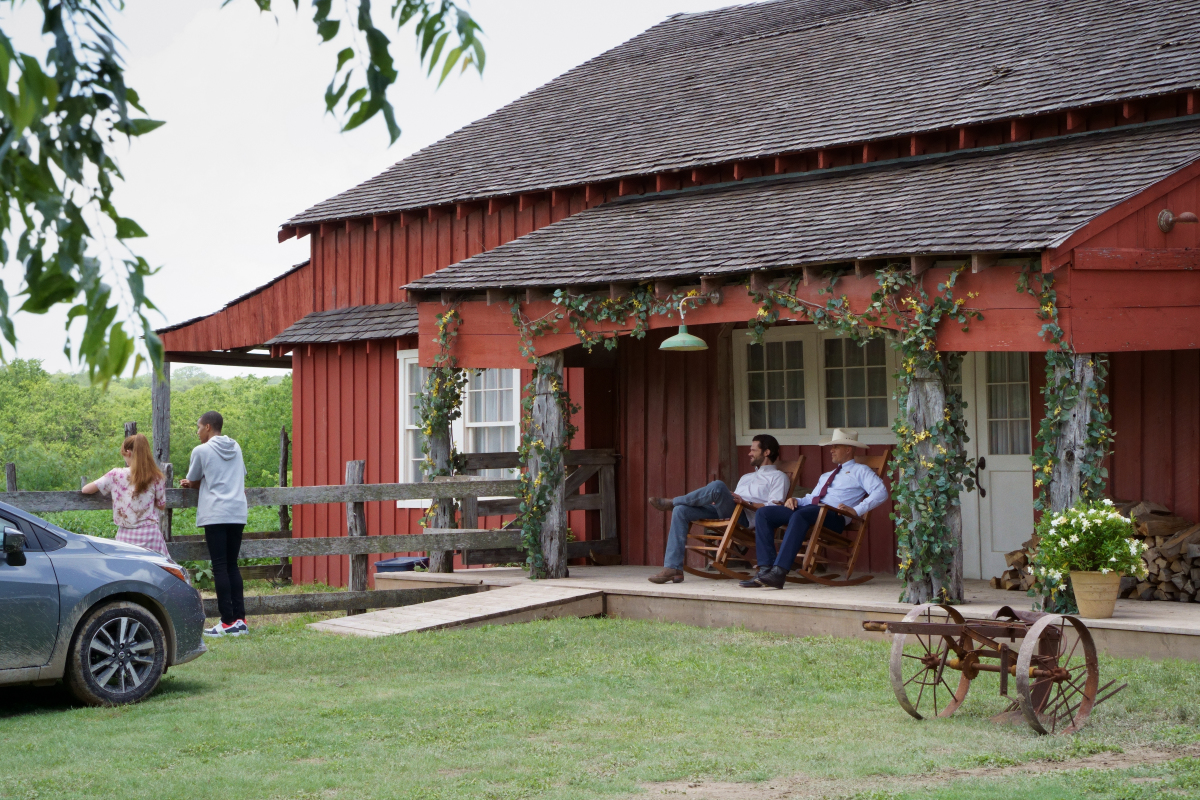
The Morning After
“What do you want to be when you grow up?” It’s a common question asked of children and teens. In my family’s case, the various answers were firefighter, construction worker, police officer or veterinarian – all vocations the children saw personified around them. For me, from what I remember of when I was young, I was always irritated by that query. How was I supposed to know what direction my life should go? Why did I need to know something like that when I was six or ten or fourteen?
By the time sixteen rolled around, though, that harmless conversation starter got serious. Summer jobs were supposed to have meaning and direction. Gaining experience in your future field of study became more important than picking up a few bucks cutting grass or babysitting. Then the real pressure began. College or vocational school? Which college has majors that appeal to you? Money, deadlines and pressure were now associated with answering the simple question, “What do you want to be when you grow up?”
What I know now that I didn’t know then was that question would, and should, keep arising throughout a person’s lifetime. If you’re lucky, your circumstances will allow you to continue to redefine yourself over and over again. If you’re surrounded by family, friends and peers who support you, personal growth becomes an option, enriching not only your various stages in life, but also the world around you. “Bad Apples” created turning points for several of Walker‘s characters, allowing us to watch them grow as they struggled to define what they want to do with their lives.
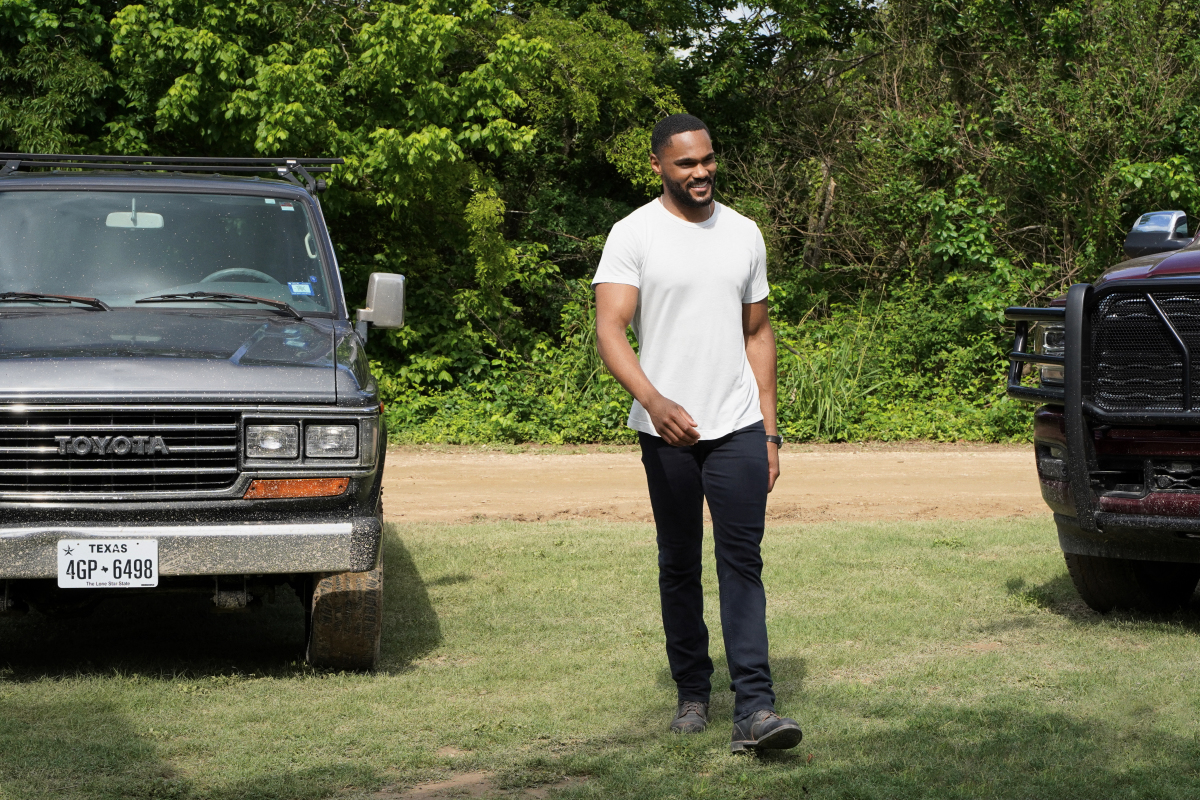
(a scene that I guess was cut from the final episode)
Trey, for example, had been very successful as an Army Medic, making medicine the obvious and perhaps expected choice for his post-military life.
Trey: … you know, if my TBI was irreversible, then it would take medical school off the table and I wouldn’t have to make the choice. Look, after years of being an Army medic with multiple deployments, countless trauma surgeries, I just don’t know if this is what I’m meant to do.
Cordell: No, I get that. What does Micki say?
Trey: I haven’t told her yet. I mean, I have to figure out what I really want first. Micki, she already knows what she wants– to be a Ranger. I mean, she’s focused, she’s organized, ambitious. And I’m… I’m turning my back on a great career. I mean, am I crazy?
Prior episodes have repeatedly shown that Trey’s focused, calm use of his medical skills would make him an excellent doctor. He’s saved the day when faced with everything from minor construction accidents (Cordell’s’ hand) to tornado rescues. Most recently, he talked teens over the phone through surgery on a dying, gunshot man, while they themselves were at gunpoint. But there’s more to Trey than his medical training. We’ve also seen Trey give compassionate and insightful advice to Micki each time she’s had some kind of personal crisis, whether it was dealing with a deceitful adopted mom, an absent biological mom or a new job where she was trying way too hard to make her mark.
Truthfully, Trey’s wisdom made him a more appealing and unique person in my estimation. While he learned triage in the military, his personal insights were likely a natural talent that was honed by his combined life experiences. His seemingly sidebar job as a coach snuck up on him and gave him the idea of a new vocation for which he had raw talent but no formal training.
Trey: I’ve thought about it, and… I don’t want to be a surgeon. Look, I didn’t want to say anything until I made up my mind. Are you disappointed?
Micki: No. I’m surprised. But… you know I got your back no matter what you want to do.
Trey: I want to help people and their emotional problems, rather than their physical ones. You know, coaching soccer, I really care about those kids and their well-being. I’m thinking about pursuing psychology.
So Trey made a decision to change the direction of his life. His second career (the first being army medic) will be psychology. Who knows? Maybe after he begins studying psychology, he will combine his medical and psychological training to become a psychiatrist. Certainly that field can use more people who competently understand and care for a person’s mental, emotional and chemical shortcomings in tandem. Maybe all it will take is for someone to encourage him and suggest this as a possibility.
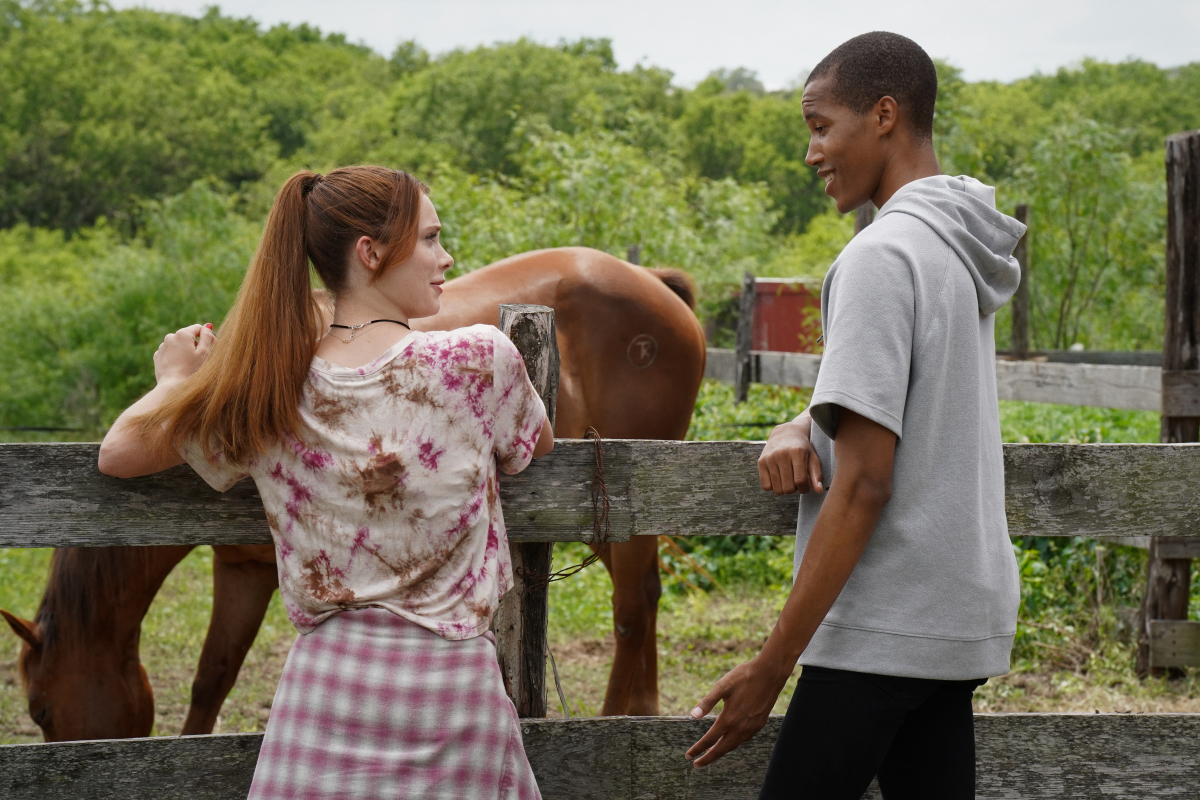
Stella was also considering what she wanted to be when she grew up. For her, it was her first go-round with this question.
Cordell: How are those summer plans shaping up?
Stella: Um… Get a job at The Side Step? I know the management.
Cordell: Ah. Come on, Stel. Summer before your senior year? You need something you can put on a college application. You know what? Your uncle– how ’bout working on a campaign? Got an idea. Hey. You need an intern?
Liam: You want to lick some stamps?
At first, Stella dismisses this offer as unimportant, uninteresting or beneath her but she ends up taking the “job” anyways. Actually, she probably decided to lick stamps because it was the most expedient end to the intimidating task of finding a summer job. What she doesn’t realize is that every small role we play in life contributes in some way to making us who we are. Her dad is right: an “internship” on a political campaign is more impressive on a resume than washing dishes in a restaurant, but both would have provided her with valuable skills. A campaign office environment would teach her organization, teamwork and more about how people attain positions of power in society. Working in a restaurant would teach her about the hospitality industry and how to tactfully deal with numerous personalities.
Whereas it was her dad who pushed her to look beyond the easy solution of working at the ‘family business’, and her uncle who provided her with the inside track to get an internship, it was the non-threatening encouragement of a friend that got her to start thinking further into her future.
DJ: But what about Stella Walker? What’s she gonna do?
Stella: She’s still… undeclared.
DJ: Well, if you ask me, based off of everything you told me about what happened here – Hoyt, this Trevor dude – just sounded like you were ready for a change. I got an idea. Why don’t we check out UT tomorrow? Just to see what it’s like. I have some friends who go there. They can show us around. Maybe… help you decide what’s after high school….College doesn’t have to be the next step, Stel. Like, what do you want to do? And it doesn’t matter what your dad thinks or your uncle. Just you. (Cue Sam Winchester music)
Stella: I keep thinking about Mom. Wanting to do something like that, helping people. I want to do something that means something. I just… I don’t know where to start.
Stella and DJ never got to UT because of the parallel theme of the episode – corrupt and/or bigoted people who infiltrated positions of power and trust. But Stella’s exposure to the reality of discrimination and corruption forced her to grow up a bit. She realized that the world needs good people to occupy positions of authority. The more good people step up, the better the chance that society’s systems will be fair and just.
Stella: Have you thought about going back? To the Rangers? After you came back, all I wanted was for you to be here. Not just home but present, you know? For me, for Augie. But then Uncle Liam got shot and-and Hoyt… The point is, you showed up. You were there for us. And… when I called you after DJ got arrested, I knew you’d come. I wouldn’t have been able to say that a year ago. And even though I love knowing that you will always pick up the phone when I need you, I realize the Rangers need you, too, Dad.
Cordell: Stel, baby girl, uh… The Rangers are… fine without me.
Stella: It’s a part of who you are, Dad. After what happened today, I can’t be selfish. This city, this world, it needs good people. And…you need to be able to do what you do best. So do it, please.
Hurray and hallelujah! Stella and Augie reached a milestone of maturity, looking beyond their childish, selfish needs to consider the greater good. They also recognized their father as more than just their dad. His training as a ranger combined with his upbringing as a grounded, honest man had carved a unique path for him. He is a valuable member of society, and someone who is needed to fight the evils of our world.
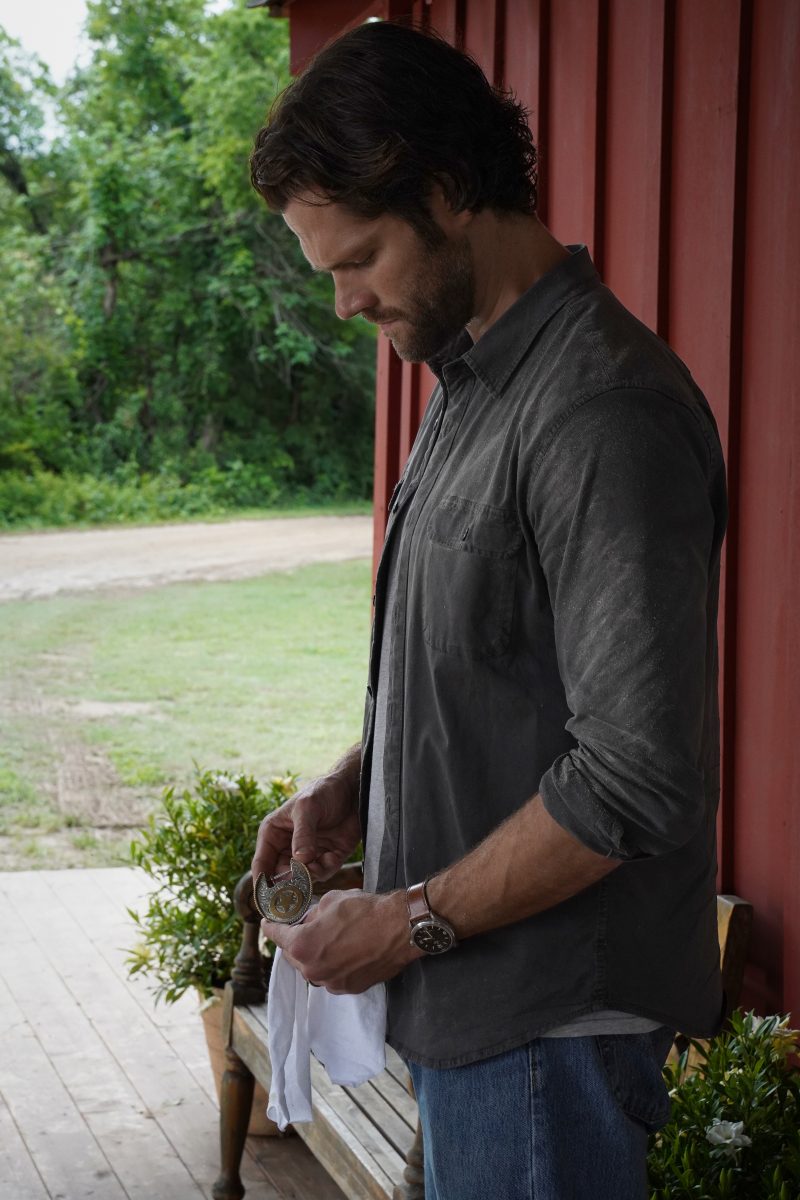
Cordell: You need more backup? I know this isn’t exactly, protocol, just showing up like this. I’ve had time to do a lot of thinking, and I’ve searched a hell of a lot more than my soul to get me back here. I guess what I’m trying to say is… I’m ready. To be here, to be back. This, the Rangers– all of it. It’s who I am. Whether I’m wearing the badge or not.
Cordell’s acceptance of self has been a long time coming. We don’t know how or why he first entered the force, but a younger, less mature Cordell chose the career of a police officer. Perhaps his initial decision happened much as Stella’s investigation of her life’s purpose is happening – it was the expedient option or the result of an off-handed suggestion. Maybe Cordell simply knew he wanted to “help people” which is all Stella knows at this point about herself and how she wants to contribute to the world. But after the love of his life died, a beaten, lost version of Cordell learned that his initial instincts to be a ranger were grounded deep, in the core of who he is and wants to be. Cordell answered the question, “What do I want to do when I grow up?” by first answering the question “Who am I?” He found himself by taking some time to slow down, quiet the chaos and hear his soul whisper…
…this job is more than just a badge. It’s me. It’s us. Always will be.
The last step was Cordell being given permission by his family to be who he wanted to be. The decision affected them too, and they let him know that, this time around, they have his back.
Cordell: Stel, thank you for your support, but even if I were to consider going back to the Rangers, we’d still have to get the sign-off from your brother first. Look…
August: Yes. Yes, Dad. Just don’t make me sand anymore. No, seriously though, we, uh… we got your back.
Making (Good) Decisions and Change
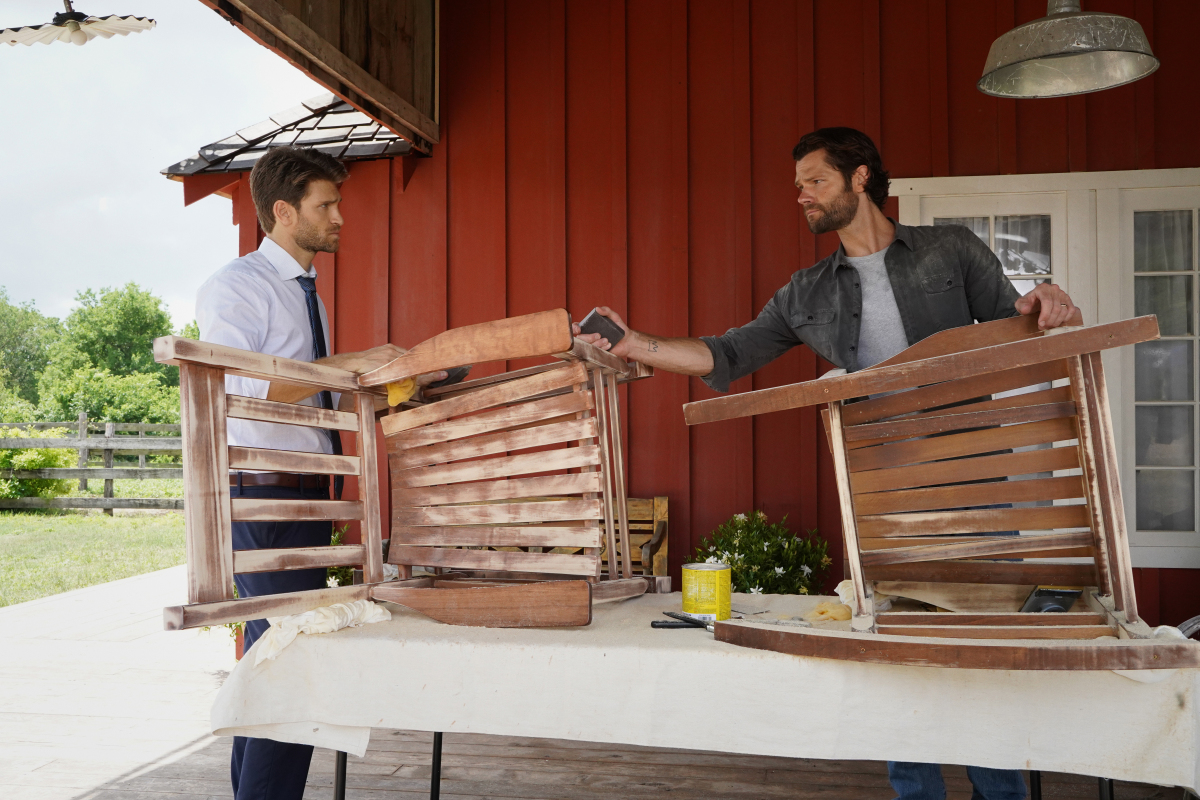
Besides, Cordell, Trey and Stella, Liam also took a giant step forward when he faced his betrayal of his partner.
Liam: And while I wish that I would have made different decisions in the past, I will work hard each day to make better decisions in our future.
He and Bret reconciled and can begin healing (who thinks Liam and Bret will keep their relationship strictly professional while working closely together now?). Whereas earlier in the season (e.g. 1.06 “Bar None”), members of the Walker family put all their effort into Trying to Recreate the Past (e.g. camping tradition, saving the bar), “Bad Apples” focused on personal breakthroughs and making good decisions about the future.
It’s worth noting that “Bad Apples’” examination of people’s career choices covered progressive stages of individuals’ lives. As a teenager, it’s easier for Stella to answer “What do I like to do?” than it is to know who she is as a person. At sixteen, she hasn’t had enough life experiences to form the personality, values or skills that will mold the adult she will become. The choices she will soon make will put her on a path, but as Trey realized, a person’s initial path may not be their true calling.
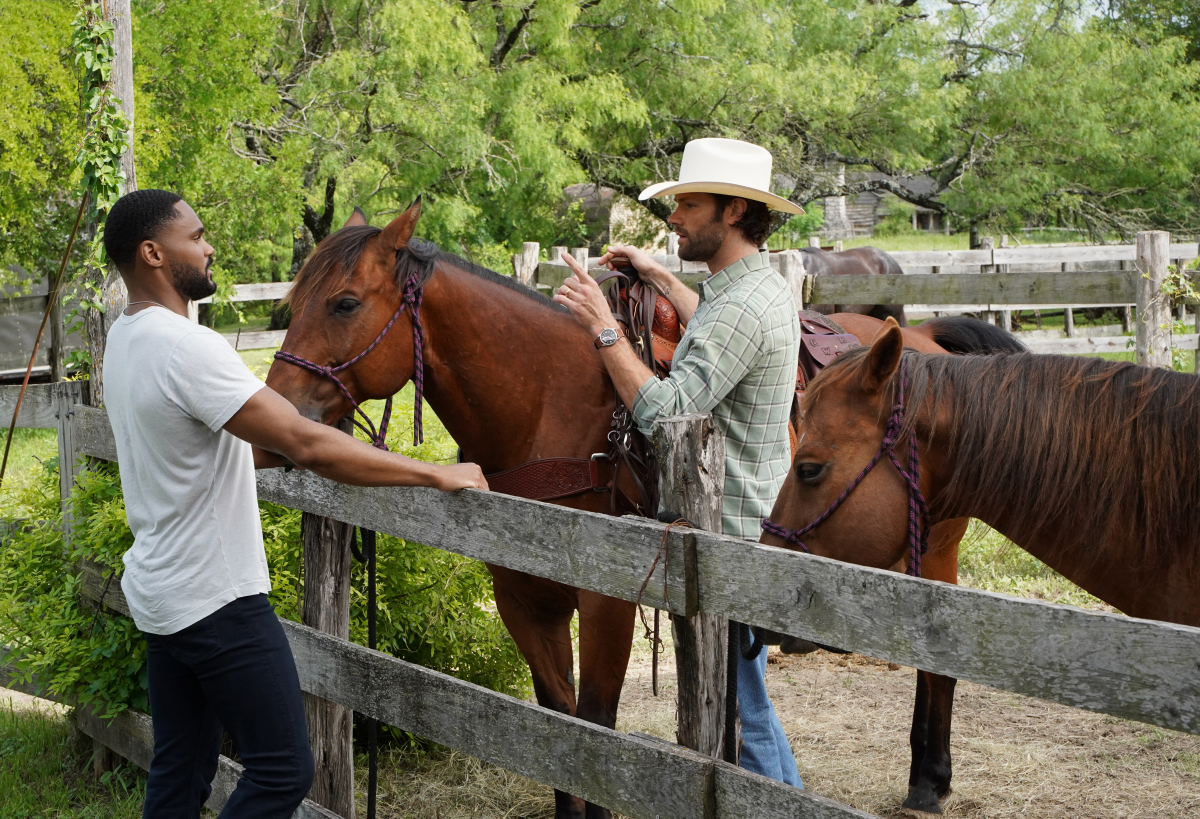
Enlightened by everything he learned, saw and did as a medic, Trey knows a great deal more about what he’s good at and what makes him happy. Still, like Stella, he hoped that circumstances (his TBI) would make the decision for him, sparing him the anguish of having to choose one path and forsake another. This second choice about who he wants to be is an informed choice, though, and he uses his greater knowledge of self and what he’ll be up against in the world to finally “declare” a college major.
Cordell is also making an informed career choice, but his is after many, many years of experience. He is in a later stage of life than either Stella or Trey. Cordell was presumably a police officer before he became a ranger. Once a ranger, he worked with multiple partners and for multiple captains. He worked undercover and in uniform. The world of policing has also changed in Cordell’s tenure. DJ summarized it best:
When Dad told me that Uncle “Stomp Ass” Walker was hanging it up, I was in disbelief. Look, I-I used to think all your maverick stuff was cool. Now, being a bit older, I got to say, the… “rebel with probable cause” bit feels a bit dated.
This was a clever summation of how the show wants us to view Walker’s professional and personal journeys, as well as its social commentary of society’s recent awakening to changes that need to happen behind the “blue line” (quoting the corrupt cop). It stung a bit as a categorization of Cordell, as I’ve previously written that we haven’t seen the “stomp ass” tactics they keep telling us earned Walker that reputation. But if I concede defeat that we should accept what the show wants us to believe versus what it convinces us is true, I’ll also have to accept Cordell as the poster boy of reformed peace officers.
The Title Thread – Bad Apples,
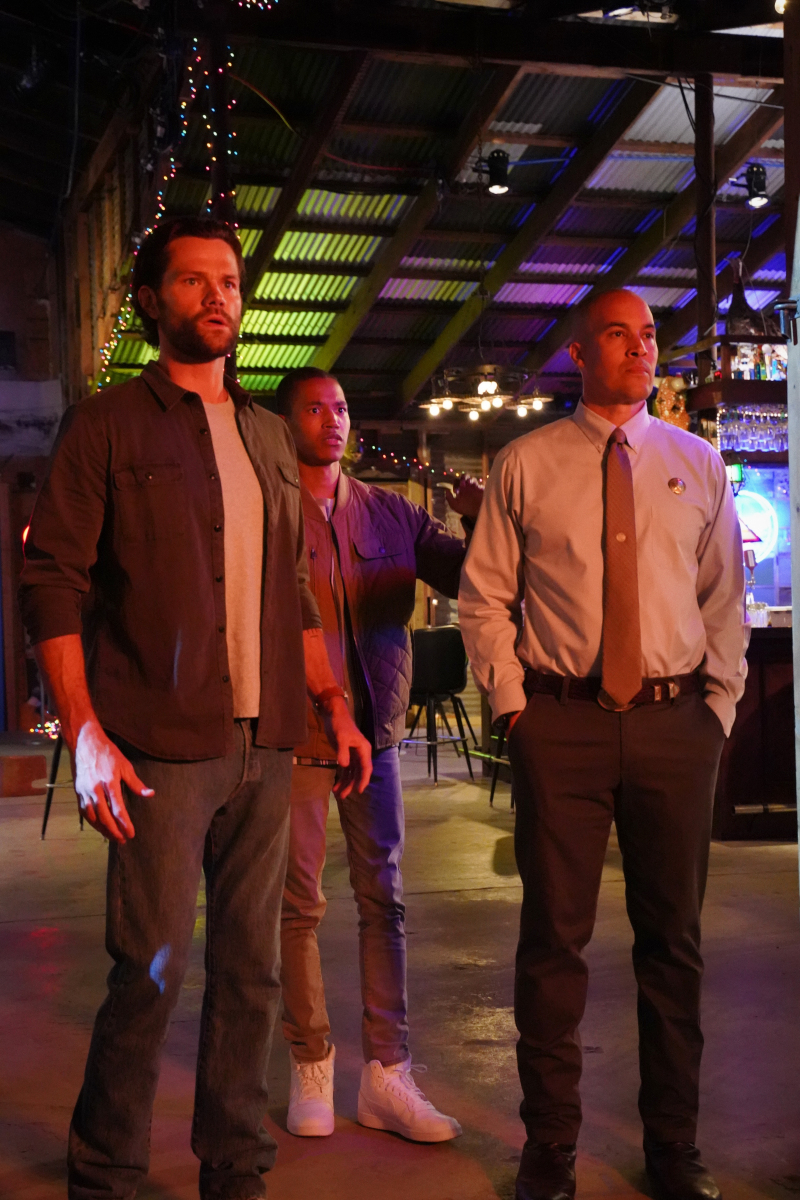
The more obvious and important theme of this Walker episode was the old guard abusing privilege and power wherever and however they please. Captain James was used to being targeted because of his race. His son, Dominick, thought he might escape racial profiling because he had a new privileged rank in society as the son of a ranger captain.
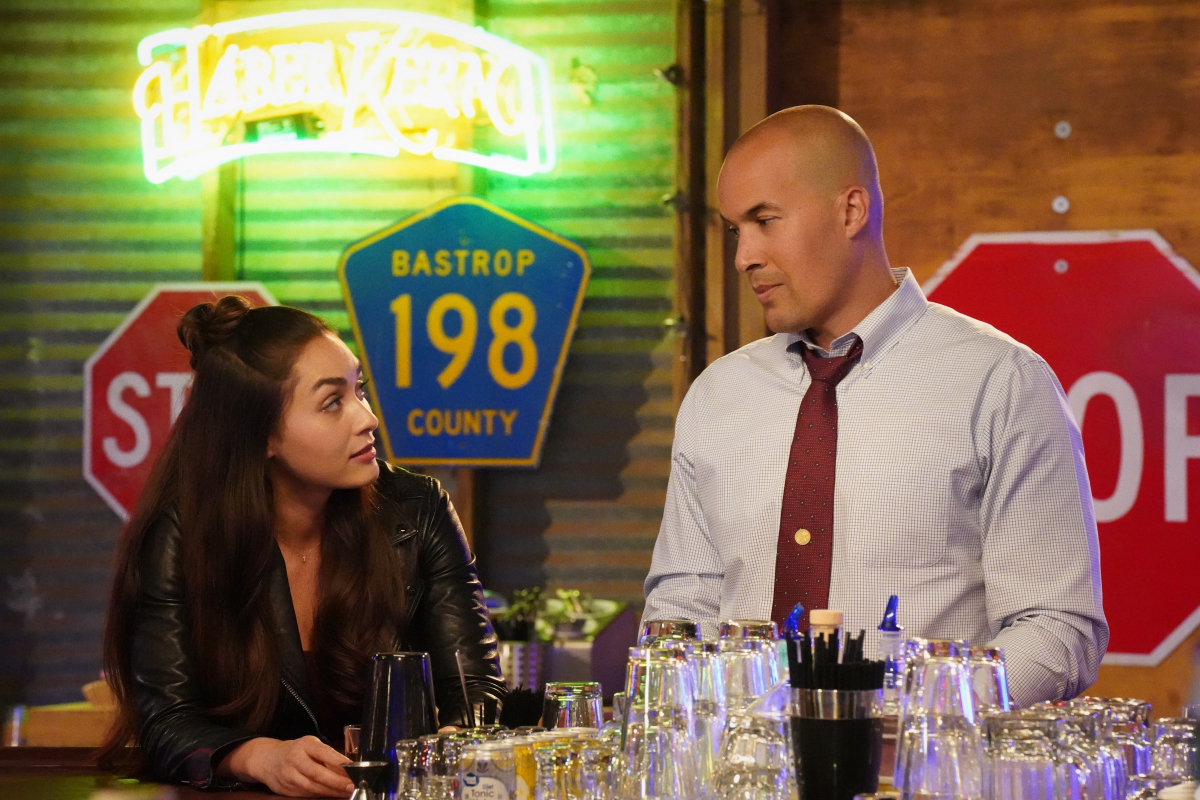
Micki was also shown being dismissed and insulted despite having broken into the ranks of the privileged few who yield power and authority via a badge. Liam was surprised to learn that a good man he had known for years had succumbed to the pressures (or enticements) of evil. So the message was clear. There’s still a LOT of work to be done. Good people in power must fight for what is right or corruption will win.
District Attorney McLawson: I’ve decided to work from home for the rest of my term… I’m no longer fit to hold office.
Liam: I don’t understand. I mean, we all make bad decisions. Where is this coming from?
DA McLawson: I’ve let… things get in the way of doing my duty.
Liam: “Things.” Is there something that I should know about?
DA McLawson: You’re a good lawyer, Liam, and an even better man. Don’t let the job rob you of your moral compass.
…Secrets and Lies
Just as with Emily’s death, we were again teased that there’s a conspiracy to uncover, and that the recent arrests don’t get to the person who’s really pulling the strings. Hopefully, naming this episode “Bad Apples” and reintroducing the untouchable, invisible ‘source of all evil’ thread that we chased earlier in the year means that we’ll eventually learn who’s the ultimate villain behind the rangers’ cases.
Newswoman: …no stones [callback to prior episode?] are being left unturned. In fact, an arrest warrant has been issued for Lieutenant Owen Campbell of the Moss Police Department. Campbell is the alleged mastermind behind an illegal narcotics distribution ring.
It’s a least a promising breadcrumb we can put in our pockets.
Captain James: Even with all this evidence turned over, McLawson still hasn’t filed formal charges. I want you to find out why.
Stan: Could be a million different reasons.
Captain James: He’s hiding something, Stan. Liam, you have the access to find out what that may be.Liam: I’ll look into it.
Captain James: Campbell is just, uh… He’s one bad apple. We want the whole rotten basket.
Micki: Why throw out one when you can get rid of many?
Captain James: Exactly. And you probably know better than most Rangers why this can’t stand.Stan: This case has some pretty big implications, for policing as a whole.
Liam: Well, might be a great opportunity to make some real change.
I’m very curious about that call Stan had to make as soon as the DA ordered James to spring Campbell. Stan also said there could be a lot of reasons (other than corruption) why the DA didn’t file charges, and he’s conveniently the person who is running against Liam for DA. Maybe the show is playing the long game and they haven’t yet thrown out all the corrupted cops?
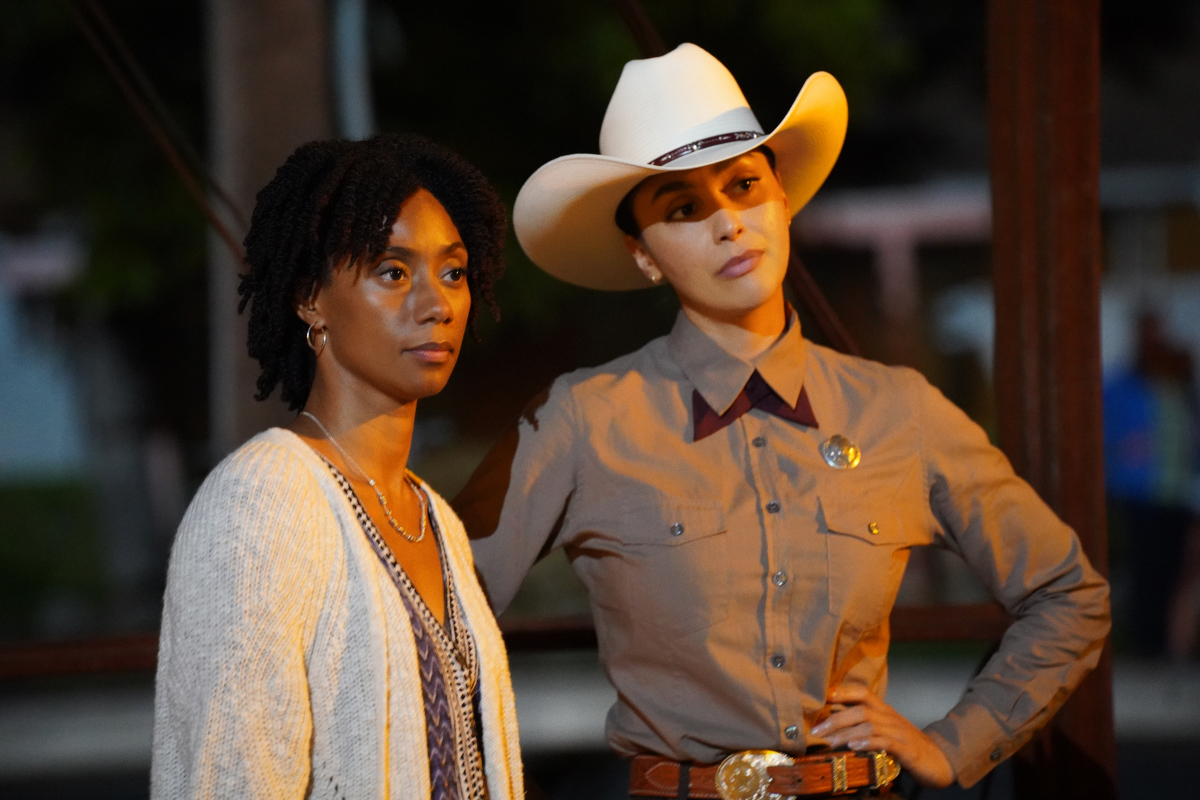
Another entire review can be written about the social messages in “Bad Apples.” We’ve seen that Jared and Walker’s producers want to use it as a platform to discuss many topics, from strong arm policing strategies and racial profiling to immigration, racial and sexual identity discrimination, traumatic brain injuries, and old guard politics, to name a few. I welcome these themes as a first step in improving the conditions that many people experience.
Defending the Ranch (i.e. Walker)
Captain James: Besides, the original pain in everyone’s neck is back. Let’s toast Cordell Walker. Welcome back, buddy. Let’s hope that things are a little more enjoyable this time around.
Cordell: Glad to be with you guys. Uh, salud. Salud. It’ll be just like old times.Micki: No, no.
Liam: It will not be like old times. I will prosecute.
Cordell: Oh, come on.
Captain James: You’re technically a rookie again anyway, so…
Micki: Oh! That’s right!
Cordell: Wait, h– wait, hold up.
“Hold up” is right!! Last I knew, Cordell asked for a Leave of Absence. We saw him filling out the paperwork in that nice lady’s office. An LOA is not a resignation or “hanging it up” or a retirement!
Stella: Retired Rangers don’t keep their gun belt buckle in their pocket, Dad. Lifers do.
Cordell would not be considered a rookie! His tenure would be bridged and all his seniority restored. They better not start treating Micki like the senior partner and Cordell like the rookie!
Also, enough with implying he was a bad cop before. I get that they’ve set him up as an example of the point they want to make, but he’s one of the good guys! Then Liam discounted Cordell’s reaction to polls:
Cordell: Uh, what’s up?
Liam: Stan’s poll numbers, actually.
Cordell: It’s only a poll, right? I mean, those things change every day.
Liam: “Only a poll.” I… I don’t even know why I’m asking you. Where’s Mom?
Uh, Cordell’s not wrong. At least Liam listened to his big bro later. Maybe they’re going to start taking Cordell seriously?
Sub-Threads
As you rewatch “Bad Apples” listen for key words that recur frequently. They all pertain to the threads discussed above, plus:
Going Home
Having Your Back and Back-up
It’s About Time
My review didn’t focus on the cultural implications of crooked cops or the daily barriers faced by people of color because those messages were fairly evident, and Walker’s breakthrough in his personal identity crisis was a turning point for the story. “Bad Apples” was tense and disturbing for at least half the episode but it ended on a feel good note, which seems to be shaping up as the series’ true identity.

I also chose to focus on Cordell’s newfound knowledge of self as it was very timely for me in my post-Supernatural life. In my spare time (haha!), I’m doing a lot of soul searching, too. Choices, decisions, uncertainty – yeah, I’m right there with you Stella, Trey and Cordell – and I’m also hoping that circumstances make the decision for me.
My career represents a stage further down the path than any of theirs, but I am encouraged that I am again asking myself “What do I want to be when I grow up?” Life continues to present us with choices and opportunities to grow. We just need to have the courage and support to carve out a future that is true to ourselves and changes the world for the better. Perhaps that’s one more life lesson we can add to Walker’s list of social messages.
– Nightsky
What did you think of this episode? Please share your thoughts below!
Catch up on Walker Reviews, and news on the cast and show on The WFB’s Walker Page!
Scan Walker and Supernatural reviews, analysis and fun on Nightsky’s Writer’s Page!
Transcript Quotes courtesy of tvshowtranscripts



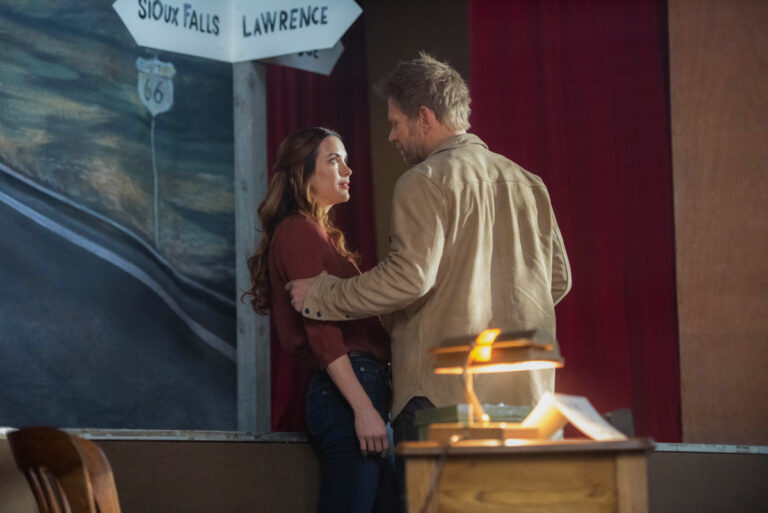
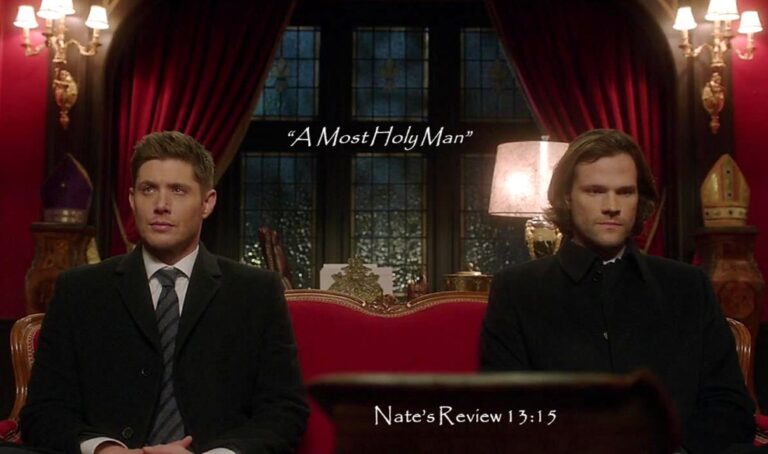
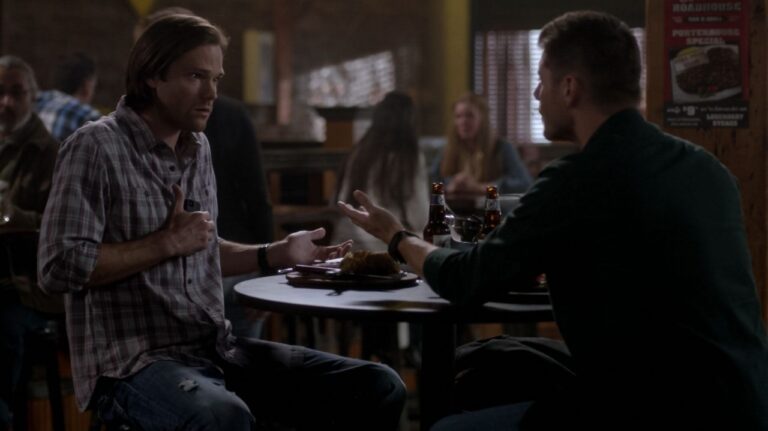
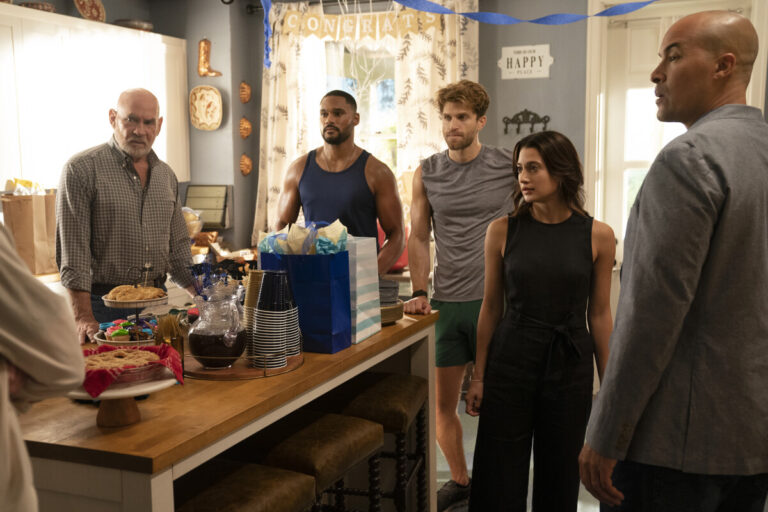
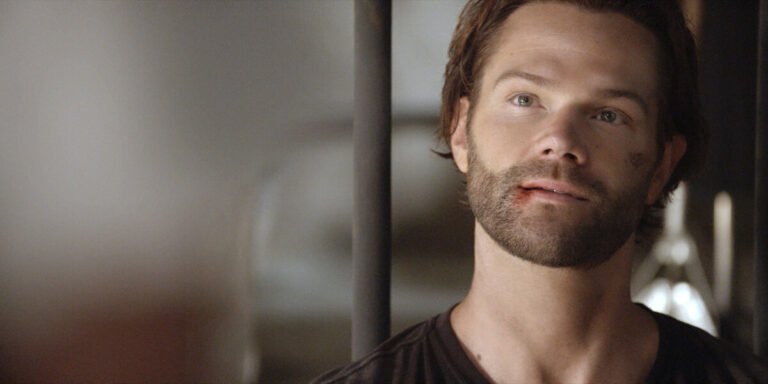
Leave a Reply